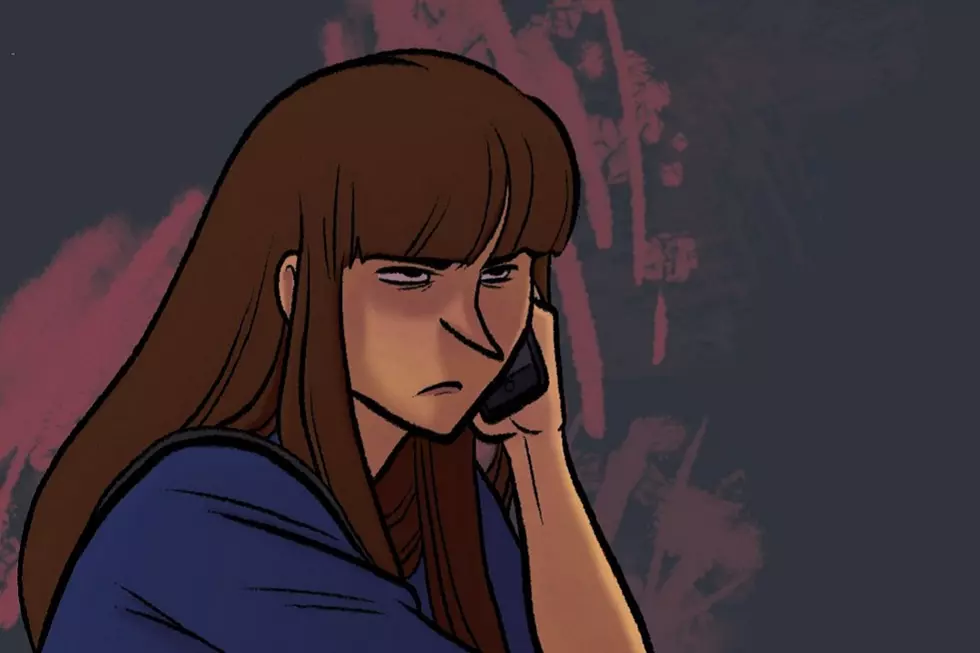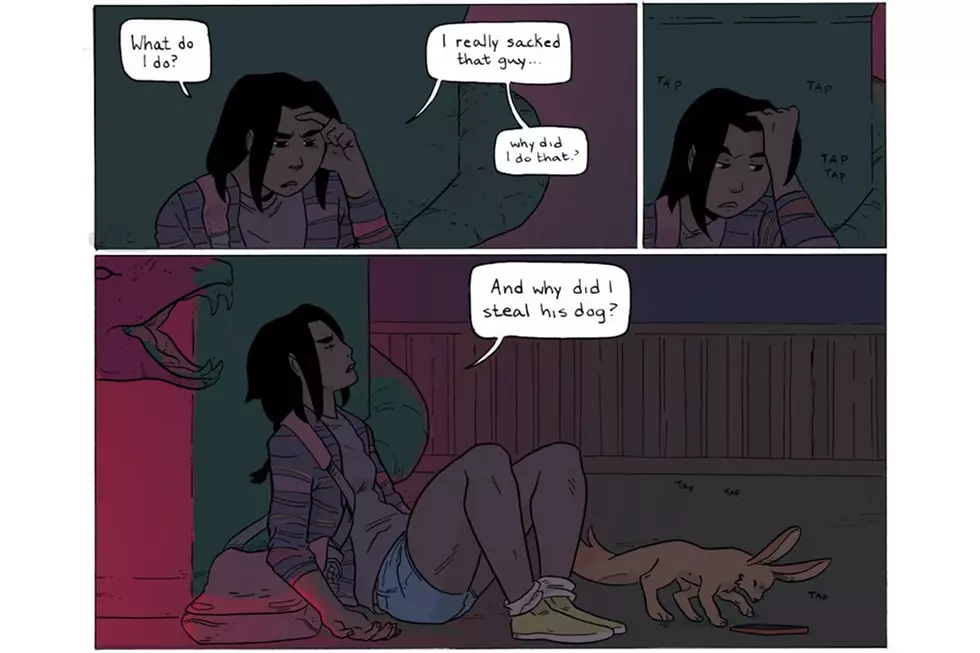
Sequential Sadness: Exploring the Pain of Depression in Webcomics

Clay's Depression Comix, which launched in September, are particularly resonant for me because as a teenager, I would spend my breaks from boarding school binging on my parents' dial-up connection and reading webcomics like Clay's A Heart Made of Glass and Sexy Losers. I also suffered from depression, a condition that has plagued me for most of my post-adolescent life. Little did I suspect that more than a decade later, the same cartoonist who introduced my impressionable young mind to the concepts of bukkake and tentacle porn would so perfectly reflect my illness in his four-panel strips.

Clay peels back the curtain on various aspects of the illness, four panels at a time: the intrusive thoughts that can sneak into your scumbag brain, the vicious cycles of lethargy and loneliness, the simultaneous fear that your self-destructive tendencies will and won't be discovered, the well-meaning but frustrating friends who tell you to just "snap out of it." They may not be as shocking as Clay's usual fare, but the Depression Comix are still an unsettling bunch.

Just a few weeks ago, Allie Brosh posted a new installment of Hyperbole and a Half titled "Adventures in Depression." Brosh has a knack for capturing the dark comedy of life with her crude but expressive MS Paint illustrations, and in "Adventures in Depression," she uses that talent to give cartoon life to her own self-abuse. Brosh describes her attempts to will herself out of her depression even as she notes:
[T]rying to use willpower to overcome the apathetic sort of sadness that accompanies depression is like a person with no arms trying to punch themselves until their arms grow back.
And so her guilt and shame follow her around the house like a judgmental Jiminy Cricket, hurling insults at her tears and her inability to get off the couch. "Adventures in Depression" has a happyish ending, and can be read as a celebration of Brosh's emotional reprieve, but it's also an intimate look inside a depressed mind.

There have certainly been other webcomics that feature depression and recovery. Several of Erika Moen's early strips from DAR, her autobiographical webcomic, clearly depict her moments of depression, even if she rarely uses the word. In his postscript to Bellen!, Box Brown wrote about his journey to becoming a happier, healthier person, which included getting treatment for his depression. In fictional webcomics, readers watch as characters like Achewood's Roast Beef and the eponymous heroine of Bruno manage (and, at times, fail to manage) their depression. And it's probably no coincidence that Questionable Content creator Jeph Jacques, who has been very open about his own depression and anxiety, has half his cast in therapy.
But what makes Depression Comix and Hyperbole and a Half different is that they bring the reader up close to the depressed mind and shout, "Hey! This is what it's like in here!" They've put words and pictures behind something that is incredibly difficult to articulate. For folks who have suffered from depression or are currently suffering from depression, the benefit is twofold. First, there is the ever-important sense of kinship, the realization that someone else understands the very thing that you are going through and that you aren't completely alone.
On top of that, these comics can help non-depressed folks who may understand depression at an intellectual level understand it at an emotional one as well. After all, it's easy enough to talk about neurotransmitters and decreased serotonin; it's far more difficult to get at the meat of what makes depression so devastating.

One of the special advantages of webcomics is that if you do want your whole support network to see them, they're so easy to share. A much-linked installment of B. Patrick's Akimbo Comics likens depression to a smashed hand. While the protagonist tries to cope with the blood and pain, his friends tell him that he'll feel better if he simply doesn't think about his hand so much. It's a comic that has attracted a lot of nodding heads from depression sufferers, and I suspect that it has launched a thousand email forwards from folks who want their friends and family to better understand their pain.
Depression Comix could serve a similar purpose while addressing a wider range of depression-related subjects. Simply open up the browser and ask yourself: Where on the comic does your brain hurt?
More From ComicsAlliance
![Five Stars: Starting At The End With Jeff Smith [Interview]](http://townsquare.media/site/622/files/2017/03/FiveStars-Smith.jpg?w=980&q=75)
![Take Me to Your Teacher: Trevor Mueller and Gabo Discuss ‘Albert the Alien’ [Webcomic Q&A]](http://townsquare.media/site/622/files/2017/03/0ALBERTVOL3_COVER_notitle-copy.jpg?w=980&q=75)
![‘Runaways’ Meets ‘Coraline’ in Cait May and Trevor Bream’s ‘Irregular’ [Webcomic Q&A]](http://townsquare.media/site/622/files/2017/03/Irregular_Banner.jpg?w=980&q=75)
![Nun Greater: Yamino and Ash Share ‘Sister Claire’ [Webcomic Q&A]](http://townsquare.media/site/622/files/2016/11/unnamed-3.png?w=980&q=75)
![When Everything Is Pink, Nothing Is Pink: Sarah Stern On Color And Creativity [Interview]](http://townsquare.media/site/622/files/2017/03/Cindersong-feat.jpg?w=980&q=75)

![Why Tillie Walden’s ‘On a Sunbeam’ Makes Outer Space A Warm Place [Webcomic Q&A]](http://townsquare.media/site/622/files/2017/03/header.jpg?w=980&q=75)


